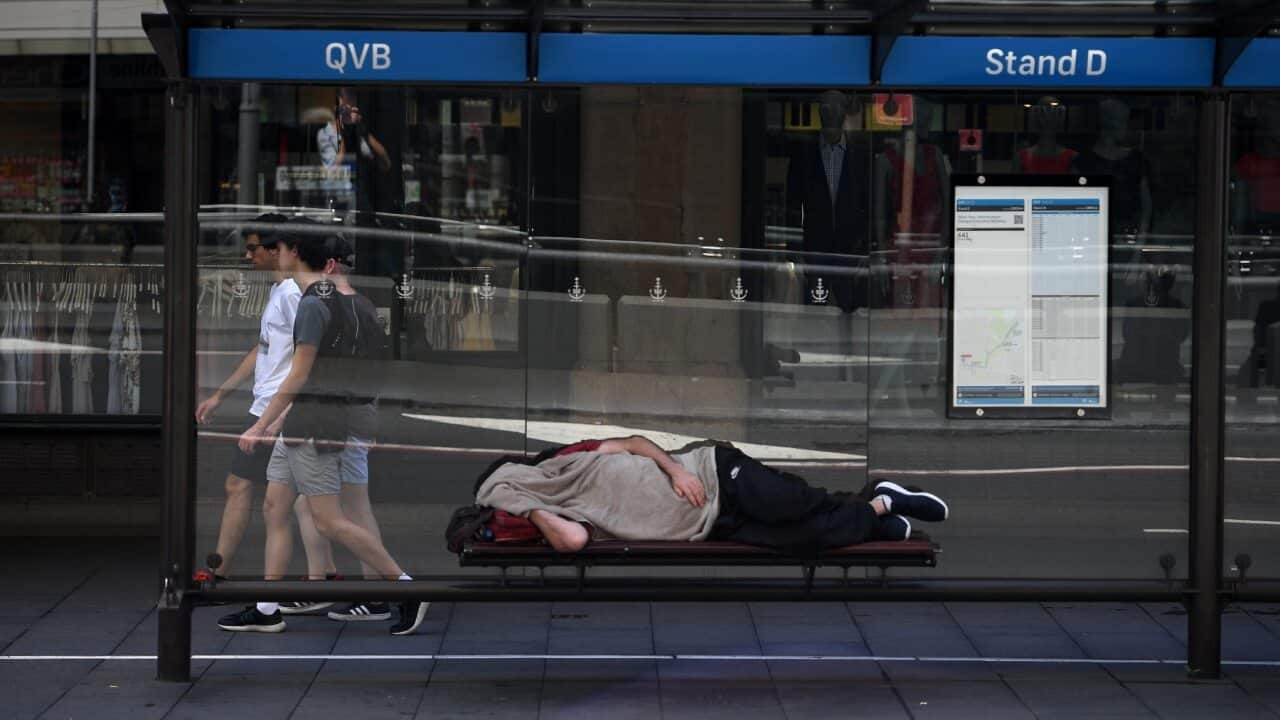Less than a third of Australia's homeless people who were provided temporary hotel accommodation during the peak of the COVID-19 pandemic have successfully transitioned into longer-term housing.
Meanwhile, some 30 per cent of tenants who received rent variations from their landlords received deferrals rather than reductions - meaning their debts have ballooned as the economy remains in the doldrums.
A study by UNSW and the Australian Council of Social Service found the reduction in homelessness at the height of the pandemic has begun to reverse.
That's because income support payments have been reduced, eviction moratoriums have ended and emergency housing measures have subsided.
Of those who were provided with hotel accommodation last year, just 32 per cent had been helped into longer-term tenancies.
And while more than 25 per cent of private renters in Australia lost income during the pandemic, barely 15 per cent secured rent variations - of which some 30 per cent had their rent deferred, rather than reduced.
That means at least 75,000 renters will be confronted with large deferred rental debts this year.
"With emergency tenancy protection and income support being cut back, tens of thousands of people will be facing huge deferred rental debts, putting us at great risk of a worsening homelessness crisis," ACOSS chief executive Cassandra Goldie said in a statement on Thursday.
The report found that while renters' housing costs dropped by 0.5 per cent on average, mortgage holders' costs dropped about five per cent.
But those reduced costs were not necessarily passed on to tenants.
Mission Australia chief executive James Toomey said the report made for worrying reading, while the unemployment rate remains high at 6.6 per cent.
"With these huge rental debts mounting and eviction moratoriums ending, many people are deeply worried they will lose their homes and be pushed into homelessness," Mr Toomey said.
Dr Goldie called on the federal government to refrain from its plan to cut the dole back to $40 per day at the end of March.
In its submission for the government's May budget, ACOSS said income support should be raised in line with the pension.
That would see a single unemployed person receive about $944 a fortnight, taking the payment to $67 a day instead of $40.
"(The government) can put in place a permanent and adequate level of income support and bolster state social housing construction," Dr Goldie said.
Reserve Bank governor Philip Lowe has also called for an increase to the dole.
Treasurer Josh Frydenberg last week refused to commit to increasing income support when the coronavirus supplement ends next month.
People in Australia must stay at least 1.5 metres away from others. Check your jurisdiction's restrictions on gathering limits. If you are experiencing cold or flu symptoms, stay home and arrange a test by calling your doctor or contact the Coronavirus Health Information Hotline on 1800 020 080. News and information is available in 63 languages at
Please check the relevant guidelines for your state or territory: , , , , , , ,












